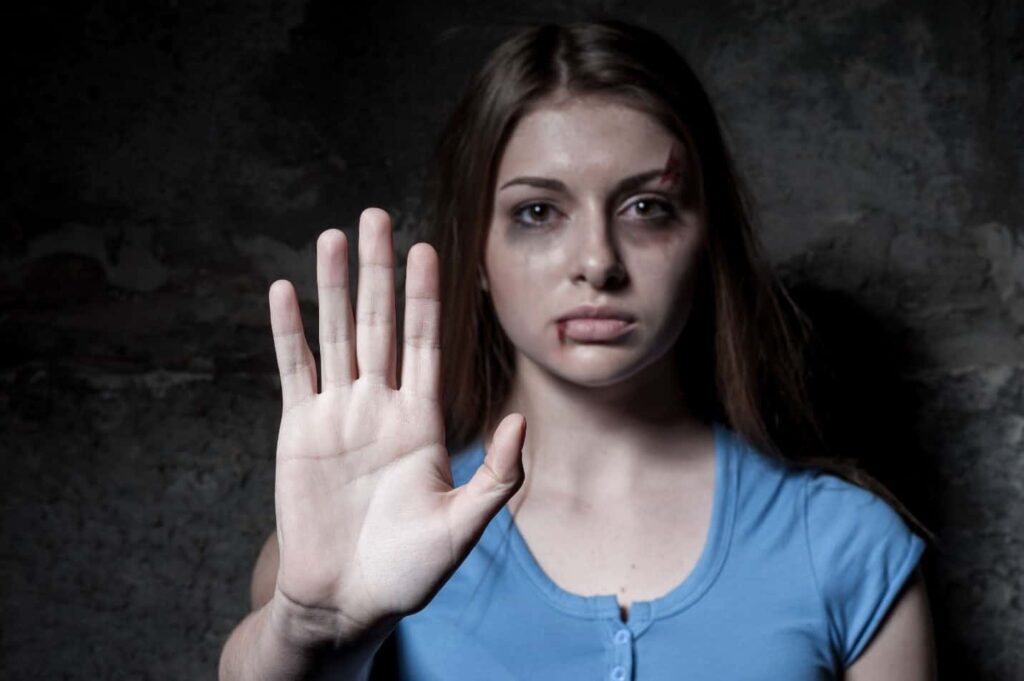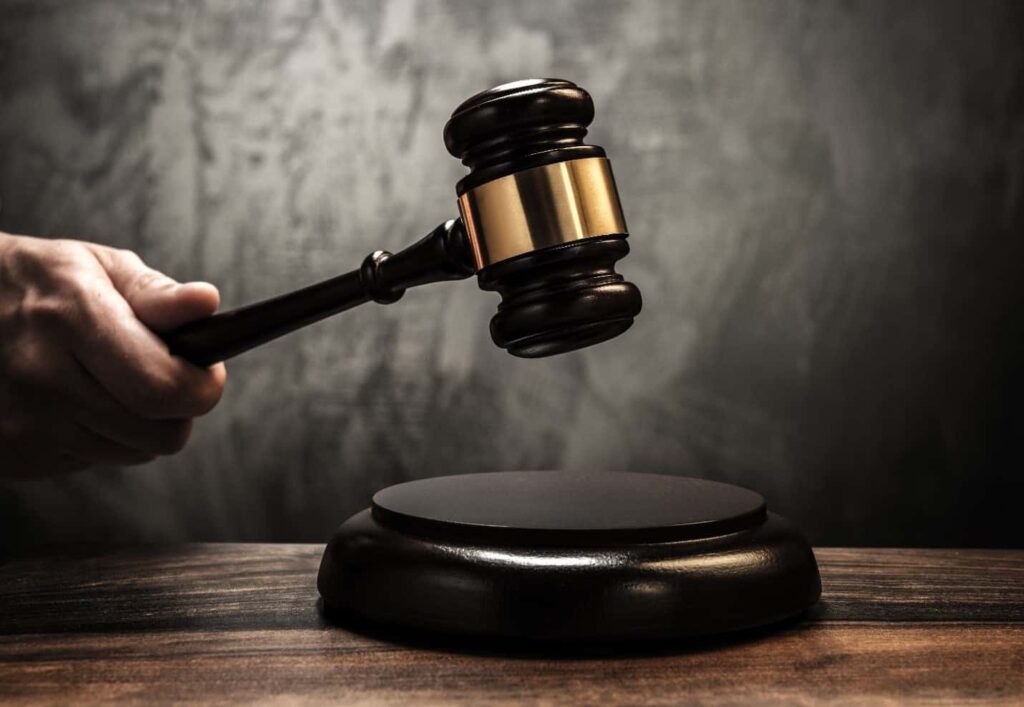Colorado Theft Laws: Penalties and Defense Strategies
July 1, 2025

Posted by: Jacob E. Martinez
Category: Domestic Violence | Gun Crimes | Protective Orders
Though many people are aware that federal law restricts felons from owning firearms, they may not be aware that Colorado also restricts the gun rights of individuals convicted of domestic violence crimes—even if the offense was a misdemeanor.
In 2013, Colorado passed a law preventing convicted domestic abusers from purchasing guns. If a misdemeanor domestic violence charge shows up on a background check, gun retailers cannot sell that person a firearm.
The law also made it illegal for offenders to own a firearm at all, even if they had legally purchased it prior to their conviction. In other words, gun rights are taken away permanently after a conviction, and they’re almost impossible to get back.
Even if you were charged and convicted of a misdemeanor domestic violence offense before the Colorado ban passed, you are required to surrender your firearms, and it is illegal for you to buy or possess one in the future.
The crime and subsequent conviction do not necessarily have to make mention of “domestic violence” for an individual’s gun ownership rights to be restricted. Domestic violence isn’t a charge itself per se—instead it is an enhancement that is attached to another criminal charge.
Under Colorado law, a domestic violence misdemeanor:
When an individual is accused of a domestic violence offense, a protection order is enacted against them. This short term civil order happens automatically when charges are levied against you, regardless of the circumstances surrounding the incident.
This order prevents the accused from contacting the alleged victim in any way, and may forbid you from entering or remaining in a specific place, such as their house or place of employment.
Under federal law, a person cannot have or buy a gun when they are subject to a valid protection order. Colorado law takes this further—if the order meets federal standards, the judge must specifically order that the individual in question cannot buy or possess firearms and ammunition.
Furthermore, that individual must surrender any guns in his or her possession to law enforcement, a licensed gun dealer, or private party. If the protection order is lifted, your guns will be returned to you.
The law makes possession of a firearm or ammunition while these protective orders are in effect punishable as a violation of the order. A provision of the 2013 law also prohibits the purchase or possession of a firearm or ammunition by anyone subject to a temporary civil protection order, even if no formal criminal charges have been filed.
Some convictions for domestic violence charges will not restrict your gun rights, as Colorado has a broader definition of domestic violence than the government.
For example, Colorado considers crimes against property to be domestic violence when they are used for the purpose of coercion, control, punishment, intimidation, or revenge. These are not included under federal law, however. Certain types of harassment may also be considered domestic violence in Colorado, but not on a federal level.
Colorado’s gun possession ban still applies if you opt for a deferred judgement or sentence in a domestic violence case.
In a deferred judgement and sentence, sometimes called a DJ&S, the accused agrees to plead guilty in order to have the cased dismissed. The case can only be dismissed if the individual meets certain requirements laid out in the sentence. Usually, this requires a certain amount of completed community service, as well as completion of a Domestic Violence Treatment class.
If no further charges or legal incidents are brought against you within the specified period, the case against you will be dismissed.
Both federal and state laws are somewhat vague concerning what happens to your gun rights during the deferred judgement and sentencing period of time. In general, it is assumed that the right is suspended during a deferred judgement, and as any legal incidents may land you back in court, it would be prudent not to push your luck during this period.
In addition to restricting your firearms rights, a domestic violence conviction can carry severe penalties, including incarceration and fines. Talk to an experienced criminal defense attorney if you have been accused of domestic violence.
About the Author:
Denver-based criminal defense and DUI attorney Jacob E. Martinez is a knowledgeable and experienced litigator with a record of success providing innovative solutions to clients facing criminal charges of any severity. Mr. Martinez has been designated a Top 100 Trial Lawyer by the National Trial Lawyers and has been awarded both the Avvo Client’s Choice Award and Avvo Top Attorney designation, evidencing his reputation for his exemplary criminal and DUI defense work and high moral standards.
Jury Trial - Not Guilty
Jury Trial - Not Guilty
Arapahoe 1st Degree Assault/Vehicular Assault
Jury Trial - Not Guilty
Denver Domestic Violence Assault Case
Jury Trial - Not Guilty
Denver D.V. Assault
Jury Trial - Not Guilty
Denver Careless Driving Resulting in Death
Jury Trial - Not Guilty
Jefferson County Felony Menacing
Jury Trial - Not Guilty
Adams County DUI
Jury Trial - Not Guilty
Jefferson County DUI
Jury Trial - Not Guilty
Jefferson County DUI
Jury Trial - Not Guilty
Jefferson Vehicular Assault/DUI
Jury Trial - Not Guilty
Jefferson County DUI
Jury Trial - Not Guilty
Boulder County DUI case
Jury Trial - Not Guilty
Arapahoe County DUI case
Jury Trial - Not Guilty
Adams County DUI case
Jury Trial - Not Guilty
Douglas County DUI case
Jury Trial - Not Guilty
Gilpin County DUI case
Dismissed
Broomfield County Probation Revocation case
Dismissal
Arapahoe County DUI case
Deferred Judgment
Arapahoe County DUI case
Deferred Judgment
Douglas County DUI case
Deferred Judgment
Larimer County DUI case
Deferred Judgment
Arapahoe County DUI Case
Deferred Judgment
Denver Felony Burglary Case
Deferred Judgment
Arapahoe County DUI case
Dismissed
Arapahoe County Protection Order Case
Dismissed
Golden Destruction of Property case
Dismissed
Jefferson County Protection Order case
Dismissed
Jefferson County Domestic Violence case
Dismissed and Sealed
Jefferson County DUI case
Dismissed
Denver Major Traffic Offense case
Dismissed and Sealed
Broomfield County Domestic Violence case
Dismissed
Summit County DUI Revocation
Dismissed
Denver DUI Revocation
Dismissed
Denver DUI Revocation
Dismissed
Denver DUI +.2 Involving Accident and Injury case
Dismissed
Denver DUI/Habitual Traffic Offender case
DISMISSAL
Denver District Aggravated Theft
Dismissed
Greenwood Village Assault case
Dismissal
Elbert County DUI
Dismissed
Arapahoe County Domestic Violence case
Dismissal
Jefferson County DUI
Dismissal
Denver Municipal Assault
Dismissed
Boulder County Domestic Violence Assault case
Dismissed
Wheat Ridge Assault case
Dismissed
Jefferson County DUI case, with 2+ Prior Convictions
Dismissed
Arapahoe County Domestic Violence case
Dismissed
Broomfield County Domestic Violence case
Dismissed with No Charges Filed
Jefferson County Felony Theft case
Dismissed
Arapahoe County Felony Theft case
Dismissed
Boulder County Felony Theft case


